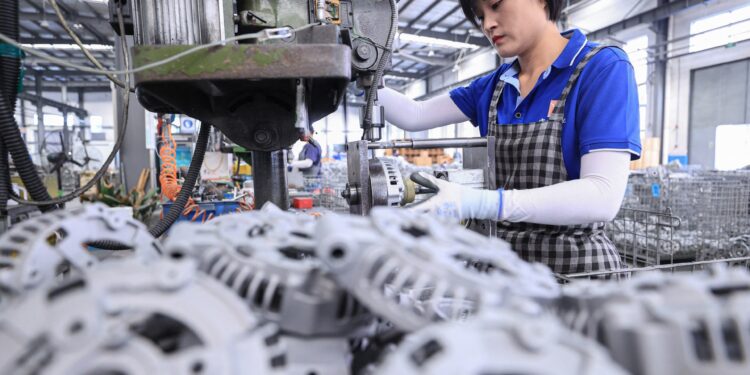In the face of an increasing economic slowdown, the Chinese government recently launched a broad stimulus package that includes lowering interest rates, providing liquidity to banks, and additional reforms in the real estate sector.
Despite the initial positive response from financial markets, many investors and economists remain skeptical about the effectiveness of these measures in the long term.
According to a report published by Forbes magazine, this package provides a temporary solution, but it does not address the deep structural problems facing the Chinese economy.
Real estate loans
According to Forbes, the latest stimulus package focuses on reducing interest rates on existing mortgages, which aims to free up household income and increase spending.
According to Goldman Sussex’s expectations, these cuts will save about $21 billion annually for about 50 million Chinese families.
However, analysts point out that economic uncertainty may push these households to use this extra income to pay off debt or increase savings rather than investing in distressed markets, especially in the real estate sector.
Weak confidence in the real estate sector
Forbes indicates that the Chinese real estate sector – which constituted approximately 30% of GDP in 2018, and which is witnessing a sharp decline – its contribution has decreased to half this percentage now.
According to a Bloomberg Economics report, house prices in 70 Chinese cities fell by 5.3% in August 2024 compared to the previous year, and fell by 4.9% in July.
The report indicates that there are about 60 million unsold apartments in China, which may take more than 4 years to be sold without government intervention.
Deeper fears
Forbes points out that the real estate problem is only part of the challenges facing the Chinese economy. Youth unemployment rates reached 18.8% last August, which led to weak consumer spending and decreased confidence in future growth. This situation reflects a deeper structural problem that requires more… than just temporary stimulus measures.
Overinvestment and inflation of production capacity
Forbes believes that the Chinese economy continues to face the problem of overinvestment, especially in industries such as solar energy that produce weak global demand, leading to pressure on global markets and exacerbating domestic debt.
The report indicated that many local governments are facing difficulties in repaying their debts due to this over-investment and low revenues.
Unbalanced economic model
Despite attempts to boost domestic consumption, it is still weak compared to developed countries, and China relies heavily on exports, making it vulnerable to fluctuations in global demand and protectionist measures from its trading partners.
According to the report, this unbalanced economic model hinders sustainable growth.
Political and economic challenges
Forbes notes that the focus on state-owned enterprises and strict control from the Chinese government hinders innovation and limits the private sector’s ability to achieve growth.
She adds that President Xi Jinping’s policies – which aim to reduce the gap between the rich and the poor – have undermined the entrepreneurial spirit of entrepreneurs and led to a significant decline in capital investments.



